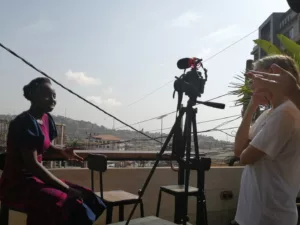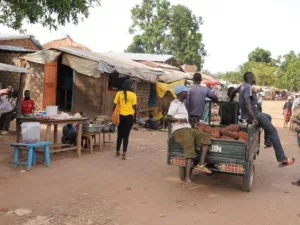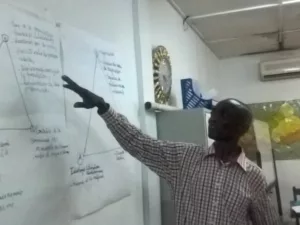LOCALIZATION
‘as local as possible and as international as necessary’

Localization, a priority on the humanitarian agenda
Localization, a priority on the humanitarian agenda National and local organizations are among the first to react and respond to the needs of the populations. Localization seeks to maximize their social value, based on their proximity and their shared vision with the affected communities. Localization therefore aims to re-establish these social actors at the center …
Continue reading
Locate capacity building tools
Locate capacity building tools Experience shows that many training courses in the humanitarian field are often reduced to technical content aimed at implementing elements of projects developed by ‘outsiders’ (people with real expertise but whose application is not adapted to the realities and appearing literally fallen from the sky for the local partners). They seek …
Continue reading
Making local knowledge more visible and valued
Making local knowledge more visible and valued National organizations have specific and essential local humanitarian knowledge and experience. Their starting point is often in interpersonal and community relationships and in their interest in resilience and long-term solutions. On the other hand, the norms and processes of the humanitarian system are based on the structures, the …
Continue reading
Towards a new humanitarian architecture through a paradigm shift
Towards a new humanitarian architecture through a paradigm shift A paradigm shift based on real location, starting not with boundaries and structures, but strengths, experiences and knowledge is necessary to achieve reciprocity and mutual learning between humanitarian organizations, both national and international. Their knowledge is complementary and mutually reinforcing. Local partners must take and receive …
Continue reading
Complementary knowledge: ‘as local as possible and as international as necessary'
Complementary knowledge: ‘as local as possible and as international as necessary’ The humanitarian knowledge of national organizations is based in particular on another understanding of social interactions and formal and informal leadership within communities, means of building trust with the various stakeholders and specific humanitarian know-how in development. and contextualized implementation of projects. Their decisions …
Continue reading
Some methodological points to make tacit knowledge visible
Some methodological points to make tacit knowledge visible In order to put the principles of localization into practice, CERAR has developed certain practical and methodological tools for more contextualized capacity building, the co-production of knowledge with local actors through action research, the capitalization of local knowledge and the use of the arts in awareness raising …
Continue reading